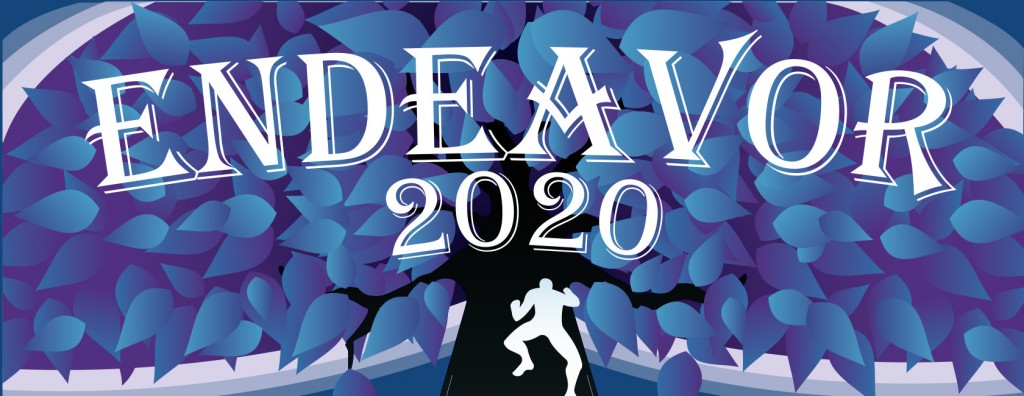Page 441 • (13,178 results in 0.096 seconds)
-
Why Study English?Written works preserve our history, describe our current reality and color our future beyond imagination. Whether you aspire to analyze literature or write it, the study of English offers a versatile and challenging major. Through reading we have the opportunity to live a thousand lives, while writing with care and imagination can reveal new self-truths. A disciplined experience with the written word develops broad vision, fresh insight, and the more sophisticated skills of
-
interdisciplinary, so most of the courses that count toward the 24-credit minor are offered by other departments (such as History, Religion and Anthropology). But Storfjell and his colleagues did create a few new courses, including a two-part series called “Interconnections” that aims to provide students and faculty a space to discuss “progress, challenges and the intersection of indigenous approaches and the university experience.” The program as a whole will teach from “a global indigenous focus centered in
-

come together as a people and be at peace with one another. Never before in the history of man have we needed more than now, commitment to the proposition that we can chase from the face of this earth poverty, hatred, ugliness and pollution; and that we can make this earth a garden and a place of peace.” Prior to his service at PLU, Dr. Wiegman taught at numerous Lutheran schools and universities, served as an aide to a Nebraska Congressman, worked with land grant colleges in extension programs for
-
the Environment. The Philosophy Major A major in philosophy is 32 credits, or eight courses. They include Formal Logic (233), the Advanced Seminar (490), and at least two of the five courses in the history of philosophy: Ancient Philosophy (331), Modern Philosophy (333), Pragmatism and American Philosophy (336), Existentialism and Continental Philosophy (338), or The Analytic Tradition (335). On approval of the department, four credits in another field of study may be used for the philosophy major
-

remain comfortable this entire time, I didn’t do my job,” she told the audience of more than 200 educators, administrators and students at the event hosted by the South Puget Sound Higher Education Diversity Partnership. “(Race) is an incredibly complex and nuanced topic,” DiAngelo, Ph.D., explained. “The racial status quo is comfortable and I want to shake it up.” The theme and central question of the institute proved to be challenging: “what does it mean to be white in a society that proclaims race
-

about a fatal shooting of one student’s best friend, turning it into a lesson on justice in the community. “I try not to shy away from the grittiness of the world,” Cushman said. “Students need to know the harsh and uncertain realities that await them. They have to be prepared academically, socially and emotionally…to overcome obstacles.” Cushman’s own history with overcoming adversity undoubtedly lends to his perspective on teaching, nurturing and uplifting young people in the community. He says
-
The Gamers The Gamers https://www.plu.edu/resolute/winter-2017/wp-content/uploads/sites/17/2016/05/gamers-cover-1024x427.jpg 1024 427 Kari Plog '11 Kari Plog '11 https://www.plu.edu/resolute/winter-2017/wp-content/uploads/sites/17/2016/05/kari-plog-avatar.jpg May 16, 2016 February 16, 2017 The scene: a cramped room somewhere in a Pacific Lutheran University residence hall at the beginning of the millennium. The characters: five nerdy dudes, each with a handful of dice and plenty of junk food
-
Philosophy professors. Dr. Sergia Hay teaches courses in applied ethics and the history of philosophy. Her area of scholarly specialization is Søren Kierkegaard, and she is an organizer/officer within the SOPHIA Organization. Dr. Mike Rings teaches courses in ethics, social and political philosophy, and environmental philosophy. He helps Dr. Hay create SOPHIA-sponsored events that enact deep conversations and dialogues. The purpose of the SOPHIA organization, as Dr. Hay stated in an interview, “is to
-

knowledge of local environments and technical skills, she hopes to create beautiful works while highlighting the importance of our native ecosystems.Portfolio Cheyenne HartBA, Studio Art | Anthropology minor Mixed-media artist Cheyenne Hart is an avid explorer of the capabilities and limitations of the human mind and intends to extend this curiosity to the world of stop-motion animation. When not feverishly making art, she listens to music or treks through Washington’s forests.Portfolio Kim HuynhBFA
-
the Superintendent of Public Instruction (OSPI) for licensure. PLU works to confirm if programs meet the educational prerequisites for professional licensure or certification outside the state of Washington. Educators should be aware that each state has specific requirements that they may be required to complete for full licensure. Most often, this is specific testing but may include background checks, verification of experience, or completion of a specific course such as that state’s history
Do you have any feedback for us? If so, feel free to use our Feedback Form.


